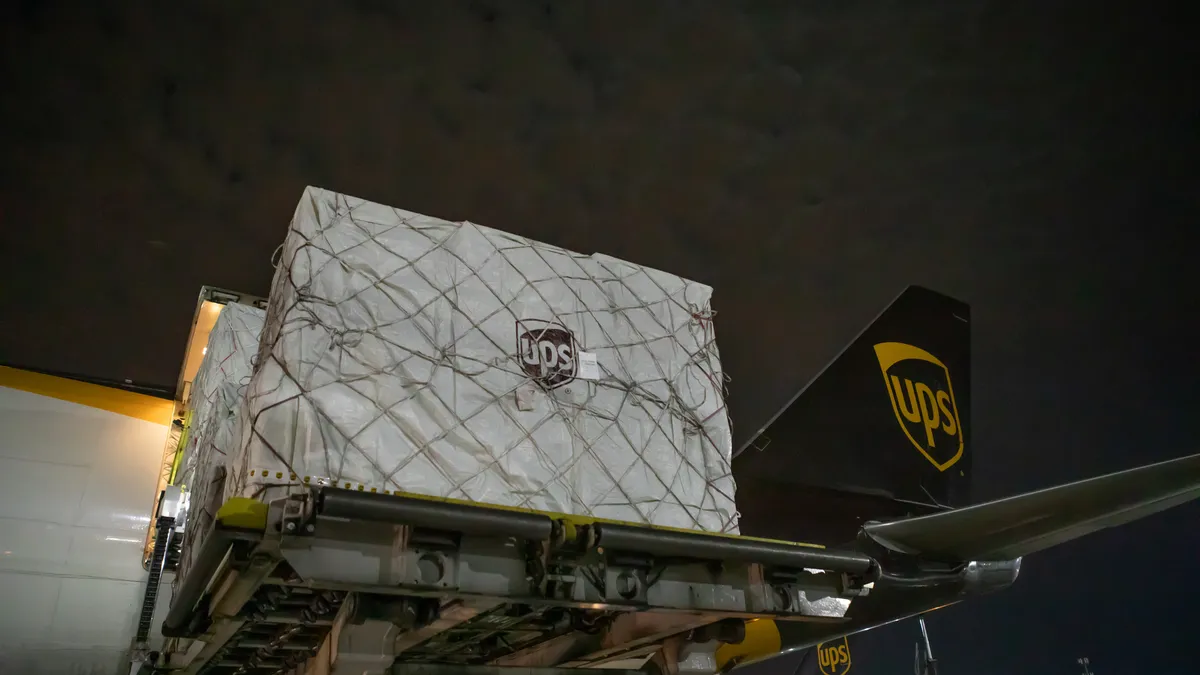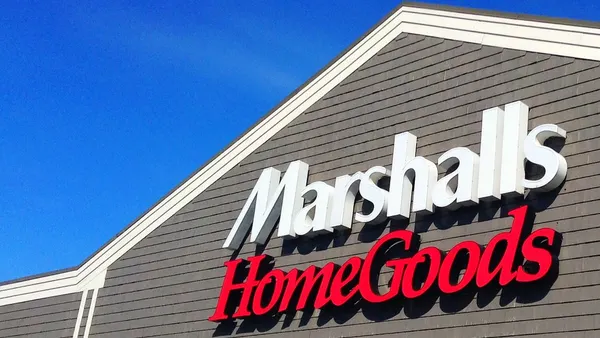Dive Brief:
- UPS Healthcare is expanding its dry ice production capacity to 1,200 pounds per hour in the U.S. and Canada, the logistics company announced Tuesday. Dry ice will play an important role in the distribution of Pfizer's coronavirus vaccine, which UPS will help to distribute.
- "Healthcare facilities in [Louisville, Kentucky], Dallas and Ontario will ensure we have the capability to produce dry ice to sufficiently pack and replenish shipments as needed to keep products viable and effective," UPS Healthcare President Wes Wheeler said in a statement.
- UPS is also partnering with Stirling Ultracold to supply portable freezers that can store vaccines at a range of minus 20 degrees Celsius to minus 80 degrees Celsius.
Dive Insight:
As the world prepares for a coronavirus vaccine, the companies responsible for manufacturing and distributing the vaccine are working to procure the items needed to get it to the vaccination site. This means packaging, dry ice, glass for vials and syringes are all potential supply chain bottlenecks as the world works to get its entire population inoculated against COVID-19.
Dry ice is the only way to keep Pfizer's vaccine cold enough as it has to maintain a temperature of minus 70 degrees Celsius and the company has said the material will play an important part in its distribution effort.
One ice supplier in Ohio told USA Today that the "Ohio health department called for 15,000 pounds of dry ice a week."
But dry ice manufacturers are generally confident they'll be able to meet the demand.
"We pretty much can produce on-demand, and we are ready for whatever demand there is," Colleen Kohler, executive vice president of Noble Gas Solutions, told ABC News 10.
But dry ice is a material that every link in the supply chain will need. Emir Pineda, the manager of aviation trade and logistics at Miami International Airport, said that airports are also working to procure dry ice and take inventory of available refrigerated warehousing that can be used for the vaccine.
"There are dry ice manufacturers around the country and around the world," Pineda said. "But, again, because of the scale, it could be a problem. It could be a challenge to meet everyone's dry ice requirements."
UPS said its dry ice will be distributed from the UPS Worldport, its large distribution facility in Louisville, Kentucky, and can be available for next-day delivery to "U.S. and Canadian hospitals, clinics and other points of care requiring dry ice to store vaccines locally."
Stirling Ultracold, the company that UPS is working with to supply portable freezers, told USA Today earlier this month its sales are up 250% from the first quarter. The Stirling freezers being distributed with UPS will go to smaller point of care facilities that need a more permanent solution for storage, according to Tuesday's announcement.
Scott Dyvig, the director of new business development at LifeMade Products, said he's confident in the packaging industry's ability to meet the demand for the coolers needed to transport the vaccines, but said manufacturers and distributors should already be communicating with those suppliers.
"The cold chain packaging solutions are available, but we recommend working with your supplier to reserve capacity now to avoid any supply issues," Dyvig said.















